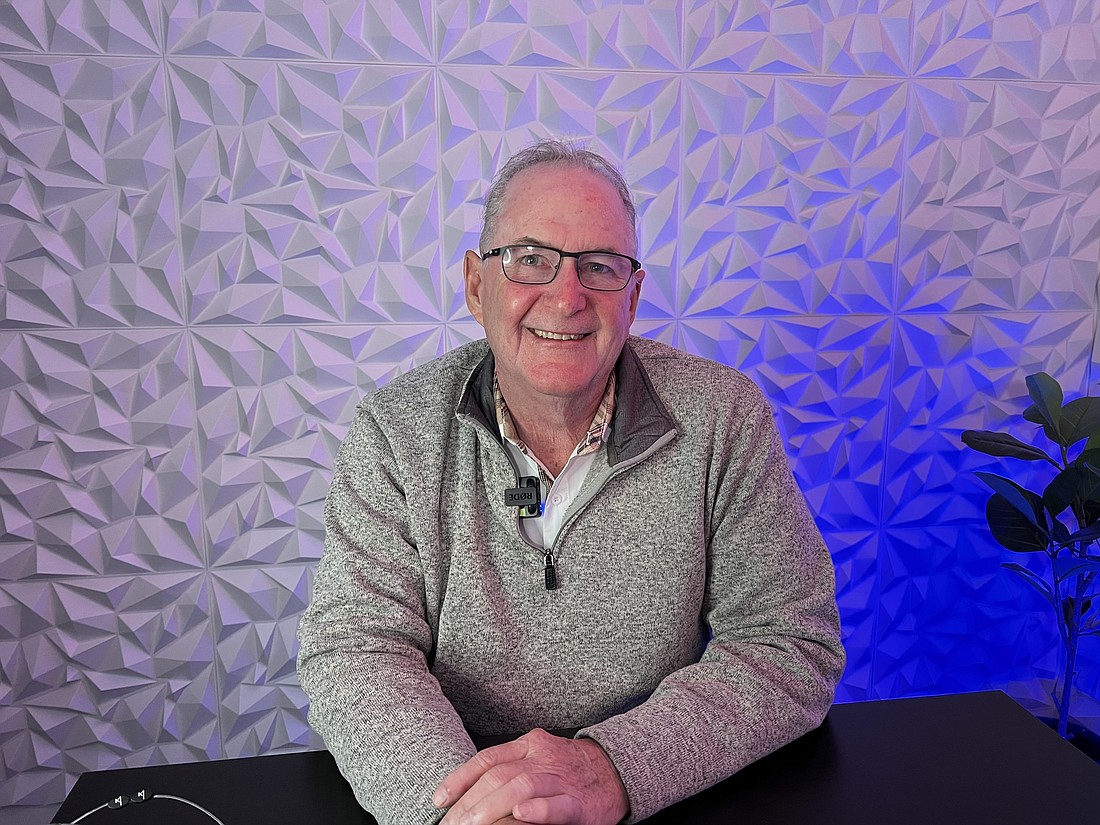- November 21, 2024
-
-
Loading

Loading

Every week for the past several years, I have joined David Ayres on WNZF’s “Free For All Friday.” Recently, after Ayres was promoted to president of Flagler Broadcasting, I decided to turn the tables and interview him, instead of helping him interview our radio guests. You can watch the interview on our YouTube channel as well, held at the PMG studio.
Pretty much. The owners, Jim Martin, Tricia [Woods] and Gary [Smithwick], from very early on have given me a lot of freedom. Operationally, there won’t be a big difference in anything that we’re doing, just continue having fun and trying to do good things.
I didn't know I had a hard shell. (Laughs) Great radio is about people, and people are about emotion, and what they think and feel.
"Great radio is about people, and people are about emotion."
DAVID AYRES
Well, one that pops in my head was when I was a DJ in Tampa, WDAE FM, and it was kind of an album rock station. Every Sunday morning, we had a thing called Wax Tracks, where people get to record the album; we would take a break and flip the disc over, and then play the second half. I was a young guy, in my 20s, and I'm watching it, didn't have to do anything, just watch it. And a piece of fuzz lands on the record, and I see it's going around, and the tone arm gets closer and closer, and they're very sensitive. And I'm like, “It's gonna hit this thing. And Tampa Bay is recording this new Moody Blues album, and so I got to do something.” So I go (blows the fuzz off), and the tonearm goes (Vroot!) and phones light up. So that was probably my biggest nightmare. One little piece of fuzz messed up a lot of people's lives. (Laughs)
First, Cleveland, Ohio. Kind of a big radio town, Rock 'n' Roll Hall of Fame, in the ’70s. The guys I hung out with were into media and TV and radio, and so I got a chance to develop. We got a hold of a guy that had an FM station, and eventually he said, “Just do whatever you want. Nobody's listening to FM anyway.” And so some of my upperclassmen started what today is WMMS radio in Cleveland, which is iconic and a big reason why the Rock 'n' Roll Hall of Fame is there, because it was an FM station that gave up-and-coming young artists, that couldn't get airplay on Top 40, a chance to be heard.
Then I moved to Tampa to go to University of South Florida and met people in radio. I was unloading trucks at JC Penney’s, just to make something happen, and then got a job and on the air.
It’s really been been a great experience. It’s a gradual spoon-feeding of education and technology and learning how to use things, and it's just so much easier for broadcasting businesses. Technology has always been radio’s friend as far as the production — but even, just like newspapers, the content and distribution. It's taken radio to new levels. We don't care how you listen, just listen. It takes radio today way beyond how far a tower in a cornfield would reach. With smart speakers in homes, you can say, “Hey, Alexa, on Tune In, play WNZF,” and boom, there it is. So, it’s been a lot different, but a lot better.
Primarily, we're an entertainment medium. I think the welding of entertainment and informing and being local, local, local, is what really makes it fun. You can read the story saying that city councilman said this, but when you hear it, it might change the way you read it when you hear the person's sincerity. There's a lot to be learned by reading and listening.
I think the No. 1 thing that any good promoter has is just a great feeling of happiness when you see people having a good time. At Creekside, people dressed up their dogs with scarves and sunglasses and the little kids in the backseat. You’re like, “Wow, if we can have a positive effect for a few hours on thousands of people, that’s a big reward.”
I really am. I'm sure the voting will be accurate. I have faith in our elections here in Flagler County and in the state of Florida. I think it's exciting to see who comes forward and runs for office and who are incumbents and how they defend what they've done, and how they try to sell themselves back to the community. I think it's healthy. And I think 2022 is going to be a really a great year.